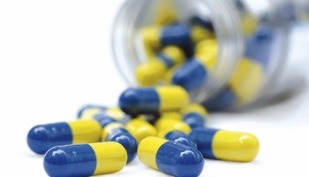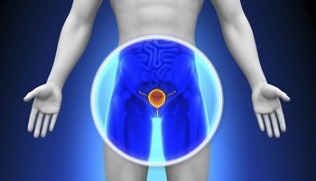
Prostatitis is an inflammatory or infectious urological disease that affects the prostate and can lead not only to impotence but also to infertility. According to statistics, this disease occurs in 50% of men. It is also noteworthy that the disease "rejuvenates" - it is often diagnosed in young people (up to 40 years old). Treating acute and chronic prostatitis is a rather lengthy process, but is most often carried out with conservative measures — anti-prostatitis pills, physiotherapy procedures, and lifestyle modifications.
It should also be noted that surgery for such a disease is not ruled out - if the medication does not give the desired result or is not effective at all in a particular clinical case. In any case, the treatment program is only prescribed individually by a doctor.
Indications for use
Important!Even the presence of typical symptoms should not be taken with anti-prostate tablets. The clinical picture may be the result of another urological or even venereal disease. In addition, the symptoms can be manifestations of prostate cancer, so taking some medications will not only be ineffective but also dangerous. Anti-prostatitis tablets for men should only be prescribed by a specialist after diagnosis.
Inflammation of the prostate gland is associated with mild symptoms in the initial stages.
The following clinical signs may indicate the development of acute prostatitis:

- painful feelings during intercourse or urination. It is noteworthy that pain may be present even during erection and after intercourse;
- increased urination, often accompanied by discomfort;
- there is pain in the vulva, groin, often radiating to the perineum and sacrum;
- with the acute form of the disease, an increase in body temperature is possible;
- erection weakening but complete impotence does not occur;
- pain during ejaculation;
- Premature ejaculation.
In chronic prostatitis, the clinical picture is almost identical, but manifests itself in waves. In this case, the symptoms are not as pronounced as in the acute form. This latent process of the pathological process often leads to a delayed diagnosis when the disease is no longer curable.
Your doctor can only determine if medications to treat men's prostatitis are most effective in all cases.
If prostatitis is suspected, the following laboratory and instrumental measures are performed:
- blood sampling for general and biochemical analysis;
- STD test;
- PCR test;
- urethral smear for bacteriological examination;
- transrectal ultrasound of the prostate;
- ultrasound of the urogenital system;
- CT or MRI of the pelvic organs.

The treatment of inflammation of the prostate gland is unique in each case.
Please note that this is just an example of a diagnostic program. The exact list of tests - laboratory and instrumental - is determined individually by the physician, taking into account the results of the physical examination and the history collected.
Management
Treatment is based on taking medication if there is no sign of surgery. It is impossible to give a clear answer to the question of “which pills are most effective against prostatitis” as the drugs are prescribed separately. Therefore, what was effective for one patient may not be beneficial for another patient.
Treatment of prostatitis with tablets includes taking drugs with the following spectrum of action:
- antibiotics;
- non-steroidal anti-inflammatory drugs;
- analgesics;
- alpha-blockers;
- immunomodulators;
- herbal pills or homeopathic remedies.
The duration of dosing, the dosing schedule and the dosage will also be determined by your doctor.
First, your doctor will prescribe antibiotic therapy.
Antibiotics
In order to determine which antibiotics are suitable for the patient, bacteriological culture is performed first. In most cases, the treatment is:
performed with- tetracyclines;
- penicillins;
- fluoroquinols.
Antibiotics should not be taken on their own, at their own discretion, as medicines belonging to this pharmacological group can have a very negative effect on the body's function if taken incorrectly.
The side effects are as follows:
- allergic reactions;
- complications from kidney, liver function;
- tinnitus, dizziness, headache;
- dermatitis;
- drowsiness, lethargy;
- Nausea and vomiting.
If you notice any side effects, stop taking the tablets and contact your doctor.
Doctors have noticed that the pain and other symptoms of prostatitis are relieved after taking antibiotics, even when the infectious nature of the disease has not yet been determined.
Patients are prescribed antibacterial medications to treat non-bacterial prostatitis.
Non-steroidal anti-inflammatory drugs
The preparations of this group are essential in the treatment of any form of prostatitis, as they relieve the inflammation and at the same time the unpleasant symptoms caused by this pathological process - pain, burning, heaviness in the lumbar region.
But they should not be taken if you have a stomach ulcer, myasthenia gravis.
Analgesics
In this case, the drug is used for symptomatic treatment.
The prescribing physician will also determine the safe dosage. You should not abuse such drugs as the body quickly gets used to them and does not give the desired therapeutic effect.
Painkillers allow a person to live a full life.
Alpha blockers
The drugs of this pharmacological group are used to improve the outflow of urine and are used in almost all forms of prostatitis.
It should be noted that in most cases, these drugs are used to treat symptoms and not to eradicate the disease itself at its root.
Herbal homeopathic remedies are also used. It is used in cases where antibiotics are not needed.
Of course, no one can ban over-the-counter medications, as many are sold in pharmacies without a prescription. However, you need to understand the following - taking pills without a prescription can be dangerous to your health. Even if the symptoms disappear, the disease itself cannot be eliminated. This means that the risk of chronicity of the pathological process and the development of complications associated with it increases.
You should see a doctor for the first symptoms and not treat them at your own discretion. The doctor not only chooses effective pills, but also prescribes physiotherapy procedures and makes general recommendations. Only such a comprehensive approach to the treatment of prostatitis will provide the desired therapeutic effect.
In addition, you must prevent such diseases and have regular (once every six months) preventive examinations performed by a urologist or andrologist.
























